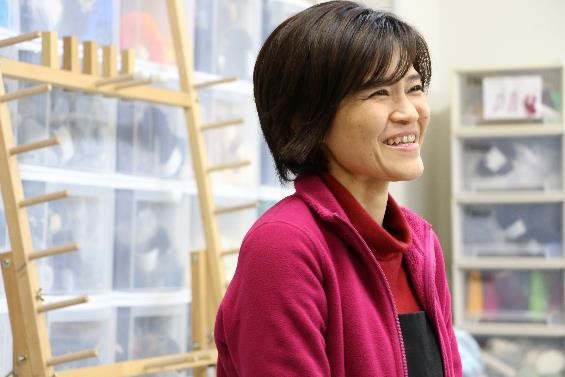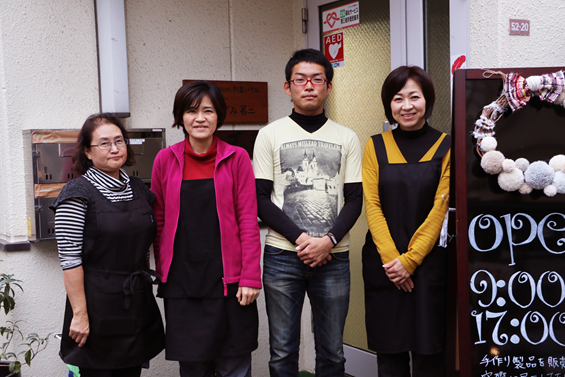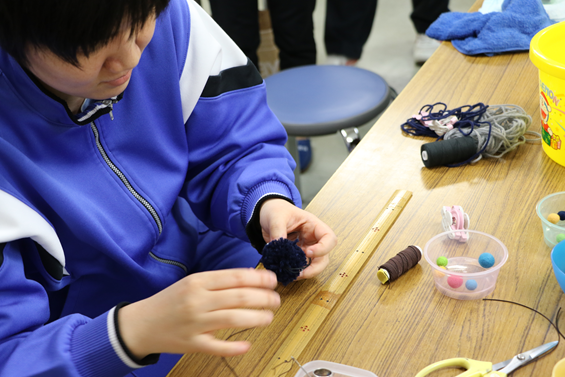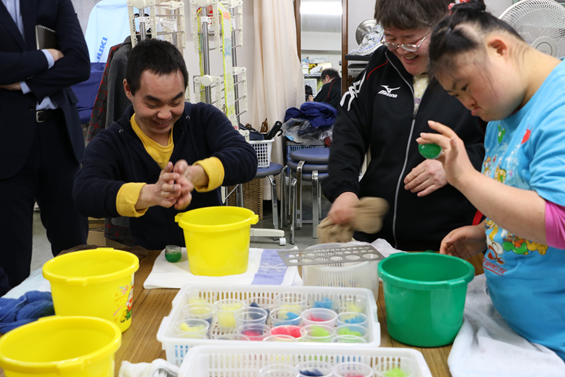Thoughts on equalto: Suginami Izumi second
We spoke with Watanabe-san, a staff member at Suginami Izumi second, Type B continuous employment support facility run by NPO Suginami Izumi, to learn about the passion and philosophy they hold toward the meaning of “working” and the creation behind their products for equalto.

Suginami Izumi second supplies products to many stores. What would you say is the key to creating successful products, and how did these connections and opportunities come about?
Watanabe-san: When I first joined Suginami Izumi second, we would create small items from materials we were given, with no particular focus on sales strategies or target markets. As a result, we did not pay much attention to design, functionality, or production efficiency, and our sales were inconsistent. I realized that was not sustainable, so I began taking a more proactive approach to sales and invested in better materials for product development. Now, we focus on the mindset of “Would I buy this myself?” when developing products. I also communicate with the users*, telling them honestly that if the quality does not meet a certain standard, “No one will buy this,” and encourage them to remake it with improved quality.
*Facility users with disabilities
Team staff: It is clear that you are very conscious of responding to the needs of your customers. I imagine expanding your sales channels must have been challenging. Were there any particularly memorable events during that time?
Watanabe-san: When we first began focusing on expanding our sales channels, it was definitely a struggle. We began by attending local events and simply exchanging business cards with as many people as possible. Through those steady, grassroots efforts, our products gradually gained recognition – and chosen by some stores as one of the suppliers – became the turning point for broader distribution. We also realized that expanding sales had a direct impact on the “motivation of working” of our users. When they see products they have made being sold in shops or department stores, they’re genuinely excited. Some even choose to buy the items from the store, despite being able to get them from our facility. It gives them a real sense of pride in their work, which has clearly boosted their motivation.
Team staff: I think we can all relate – it’s exciting to see something you have made being sold. You have been actively developing new products and expanding your reach. Could you tell us how you came to join Suginami Izumi?
Watanabe-san: Before joining Suginami Izumi, I worked at the private sector. When my child was born and my life circumstances changed, I felt it was the right time to take on a new challenge. I enrolled in a correspondence course and obtained my social worker certification. I chose that path because I recalled how often I was involved in welfare-related activities during my student years, and I wanted to take on some of the larger issues facing society. Now, I feel fortunate to be working energetically alongside both our users and staff.
Team staff: That’s wonderful. Studying through a correspondence course while making such a career change—very impressive!

What led you to join equalto? And has participating in the project brought any new insights or changes?
Watanabe-san: We were introduced to equalto by someone we knew, and we felt it was a great opportunity for Suginami Izumi to take things to the next level. That’s how our products “Bookmark” and “Mokemoke” came to life. Through this experience, I was reminded of something important – we don’t want people to buy our products because “they are made by people with disabilities,” but because “they genuinely like the design, function, and quality.” Of course, even with great design or functionality, if the quality is lacking, the product will not sell. So, this experience really heightened our focus on quality.
Team staff: We are so glad to hear that equalto has left such an impression on you.


What are your hopes for the future of equalto?
Watanabe-san: I hope that more people will come to understand the true value and purpose behind equalto. In particular, I would like to see the project serve as a bridge – helping designers, companies, and others gain a deeper understanding of the realities faced by people with disabilities and the facilities that support them. equalto has access to such a rich network and so much expertise, and I believe it has great potential to make a real social impact by making full use of those resources.
Team staff: Absolutely – let’s keep working together to make that happen!













